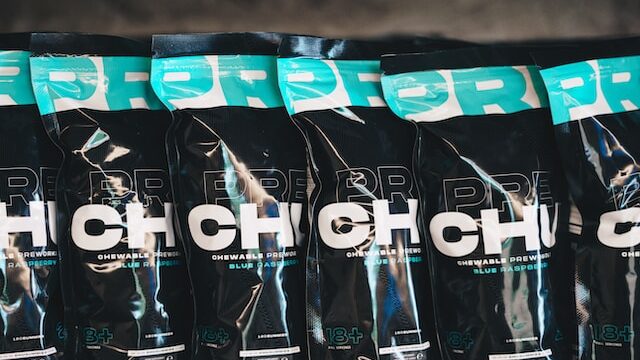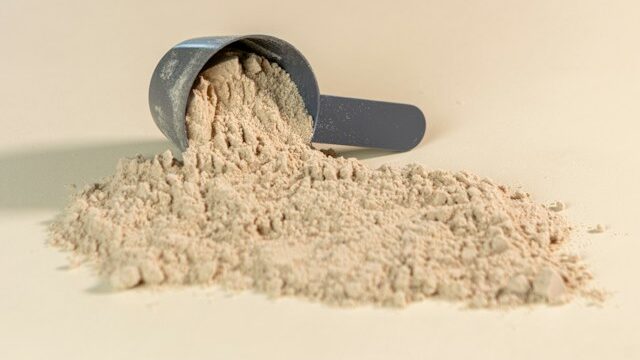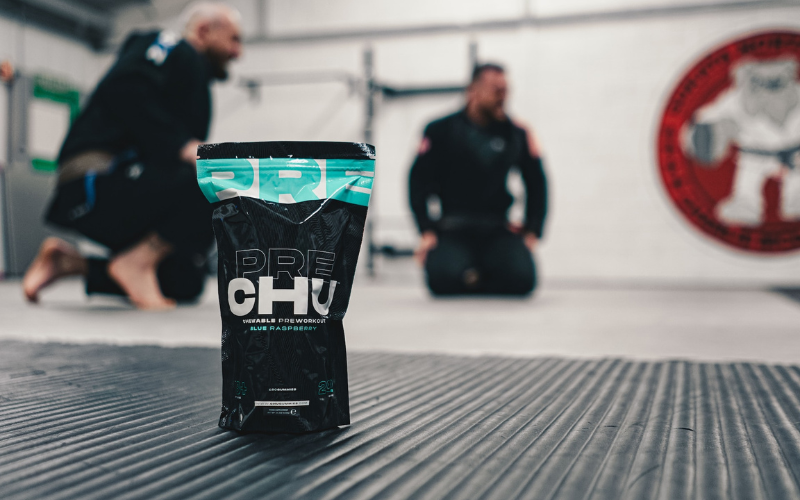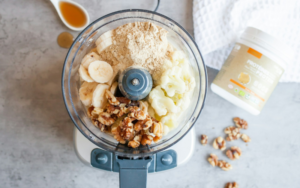When it comes to getting fit and building muscle, two supplements often come up: pre-workout and protein powder. They might seem similar, but they’re actually quite different and serve unique purposes in your fitness journey.
In this article, we’re diving into what each of these supplements does and how they can work together to help you achieve your workout goals.
Disclosure: Some of the links in this article are affiliate links. This means if you click on the link and purchase the item, we may receive an affiliate commission at no extra cost to you. This helps support our website and allows us to continue to produce helpful content. Thank you for your support!
Key Takeaways:
- Pre-workout supplements boost energy and enhance workout performance.
- Protein powders aid in muscle recovery and growth.
- Both can be used together but with certain considerations.
Table of Contents
What is Pre-Workout?
The Ultimate Workout Enhancer
Pre-workout is like a turbo boost for your gym sessions. It’s packed with ingredients that help you feel more energetic, focused, and ready to crush your workout.

Key Ingredients in Pre-Workout:
- Caffeine: For that energy kick.
- Beta-Alanine: Helps you work out longer.
- Creatine: For more power and muscle growth.
- Amino Acids: They’re the building blocks for muscle.
Benefits of Pre-Workout:
- More energy during workouts.
- Improved focus and endurance.
- Better muscle growth and strength.
When to Use Pre-Workout
It’s best to take pre-workout about 30-40 minutes before you start exercising. This gives your body time to absorb all those energizing ingredients.
For a full in depth article on pre-workout make sure to check: Pre-Workout Explained: Maximizing Your Workout Efficiency and Results
What is Protein Powder?
The Muscle Building and Recovery Aid
Protein powder is all about helping your muscles recover and grow after you’ve worked out. It’s made from different sources of protein like milk, eggs, or plants, and it’s super easy to use.

Types of Protein Powder:
- Whey Protein: Fast-absorbing, great for post-workout.
- Casein Protein: Slow-absorbing, good before bed.
- Plant-Based Proteins: Great for vegans and those with dairy allergies.
Benefits of Protein Powder:
- Helps muscle recovery.
- Supports muscle growth.
- Can aid in weight management.
- Provides extra nutrition.
Versatility of Protein Powder
Protein powder isn’t just for shakes. You can mix it into oatmeal, bake with it, or make some yummy protein pancakes!
Looking for protein powders. BulkSupplements to find your perfect workout companion!
Differences Between Pre-Workout and Protein Powder
Understanding the differences between pre-workout and protein powder is crucial for effectively incorporating them into your fitness routine. Let’s break down these differences in more detail:
Function: What They Do for You
- Pre-Workout: These supplements are all about boosting your workout performance. They give you an energy surge, help you focus, and increase your endurance so you can push harder during exercise.
- Protein Powder: Protein powder’s main role is to help your muscles recover and grow after a workout. It’s a crucial part of your post-workout routine, aiding in muscle repair and growth.
Timing: When to Take Them
- Pre-Workout: It’s best to take pre-workout supplements shortly before your workout, typically 30-40 minutes beforehand. This timing allows the ingredients to kick in right as you start exercising.
- Protein Powder: You can use protein powder at various times. Right after a workout is a common time, as it helps with muscle recovery. But you can also take it between meals or use it as an ingredient in meals for additional protein.
Ingredients: What’s Inside
- Pre-Workout: These supplements often include ingredients like caffeine for energy, beta-alanine for endurance, and creatine for muscle growth. They may also contain amino acids and other performance enhancers.
- Protein Powder: The primary ingredient in protein powder is, of course, protein. This can come from animal sources like whey or casein, or plant sources such as pea or soy. Protein powders may also contain vitamins and minerals, depending on the type.
Nutritional Content and Goals
- Pre-Workout: Typically low in calories and not meant for nutritional value. Its primary goal is to enhance your physical performance during workouts.
- Protein Powder: Rich in protein and can vary in caloric content. Its goal is to supplement your diet with additional protein, aiding in muscle repair and growth.
| Aspect | Pre-Workout | Protein Powder |
|---|---|---|
| Main Use | Boosts workout energy and focus | Muscle recovery and growth |
| When to Take | Before workouts | Anytime, especially after workouts |
| Key Ingredients | Caffeine, amino acids, creatine | Protein from various sources |
Combining Pre-Workout and Protein Powder
Can you mix pre-workout with protein powder? Yes, you can, but there are a few things to consider:
- Individual Tolerance: Everyone’s body reacts differently. Some people might find the combination too intense or experience stomach discomfort.
- Timing: While pre-workout is best taken before exercise, protein powder can be taken post-workout or at other times during the day.
- Purpose: Remember, pre-workout is for boosting your workout performance, and protein powder is for muscle recovery.
Tips for Combining Them:
- Separate Timing: Consider taking pre-workout before your exercise and protein powder after.
- Listen to Your Body: Pay attention to how your body responds and adjust accordingly.
- Hydration: Stay well-hydrated, especially when combining supplements.
- Taste: Pre-workout supplements often have strong, distinct flavors designed to be taken alone, which could clash with the taste of your protein powder.
Pros and Cons
Pros of Pre-Workout:
- Boosts energy and endurance.
- Enhances focus and workout intensity.
- May improve strength and performance.
Cons of Pre-Workout:
- Not suitable for everyone, especially beginners.
- Can cause side effects like jitteriness from caffeine.
- Some people may experience tingling from ingredients like beta-alanine.
Pros of Protein Powder:
- Supports muscle recovery and growth.
- Convenient source of high-quality protein.
- Versatile in use (shakes, baking, etc.).
Cons of Protein Powder:
- Some people may experience digestive issues.
- Quality varies between brands.
Conclusion
Choosing the right supplements depends on your individual fitness goals and needs. Pre-workout can give you the energy boost for a powerful workout, while protein powder supports your muscle recovery and growth.
Frequently Asked Questions
- Can I take pre-workout and protein powder at the same time?
While it’s possible to use both supplements on the same day, it’s generally recommended to take pre-workout before your exercise and protein powder afterwards for recovery. Always listen to your body and consider any personal sensitivities or dietary restrictions. - Will using pre-workout and protein powder make me gain weight?
Pre-workout supplements are typically low in calories and not associated with weight gain. Protein powder can contribute to muscle growth, which may increase your weight, but it’s generally not associated with fat gain if used as part of a balanced fitness regimen. - Are there any side effects of combining pre-workout with protein powder?
Some individuals may experience gastrointestinal discomfort when combining the two, especially if taken close together. It’s essential to assess your tolerance and adjust the timing and dosage as needed. - Can beginners use pre-workout and protein powder?
Protein powder is generally safe for beginners and can be a helpful supplement for muscle recovery. Pre-workout supplements, however, are often more suitable for those who have a regular workout routine and are familiar with their body’s reaction to stimulants like caffeine.



